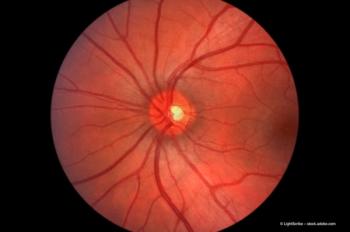
Fluocinolone acetonide implants in DMO decrease need for anti-VEGF supplementation
Dr Victor Gonzalez discusses his presentation at ASRS, regarding 0.19mg fluocinolone acetonide implants in diabetic macular oedema (DMO) patients.
Dr Victor H. Gonzalez discusses his presentation at the ASRS 39th Annual Scientific Meeting, “Characteristics and the need for supplementation following 0.19mg fluocinolone acetonide (FAc) in diabetic macular oedema (DMO) patients.”
Dr Gonzalez practices as an ophthalmologist out of South Texas Valley Retina Institute. He specialises in ophthalmic diseases of the eye and surgery of the vitreous body of the retina.
Video transcript
Dr Victor H. Gonzalez: Well, you know, diabetes is a pandemic, like we're experiencing with the virus, and it's very severe in terms of what it's done for our diabetics around the world.
One of the most common causes of vision loss in the productive age group is diabetes. And what we're trying to do with these treatments is trying to ameliorate that loss of vision and that blindness with the biggest impact on safety and the least impact on treatment burden for the patients. And my presentation was a presentation that highlighted one of the new novel treatments for this condition, the fluocinolone implant, or ILUVIEN®.
And what this medication does is that instead of requiring of the monthly injections that we need for our diabetics with anti-VEGFs, what we're doing is we're giving an implant that can last up to 36 months.
My presentation then looked at the impact of these, this new treatment on the treatment burden before these patients had and what the treatment burden was post the implant, and what we found that there was a dramatic decrease in the number of injections that were needed in these patients after the implantation of the ILUVIEN device.
Not only that, we have a decrease in the need for treatments—putting the needle in the eye—on a monthly basis, but there was an improvement in the visual acuity boon and stabilisation of visual acuity and improvement in the in the central macular thickness that these patients can experience, which is one of the major causes of loss of vision for our diabetics, diabetic macular oedema.
You know one of the interesting questions is: When is the right time to introduce steroids in our patients? And the NEW DAY study is a study that's first of its kind that’s actually putting anti-VEGF, which up to now have been the first-line treatment, head-to-head with steroids to see if there is any benefit from us starting early on. I think and I'm very enthusiastic to see what the results of that will be.
Because, you know, as we have learned, there are a lot of patients that are treated with anti-VEGF that do not respond well, because there's a little bit more complicated pathophysiology than just the VEGF levels in the eye that are causing these conditions. And the steroids are certainly a good approach to try and address all those other issues.
My early prediction is I think we'll have a very nice outcome and there'll be very comparable, if not, you know, better outcomes with—with the steroids with less treatment burden.
The American Society of Retina Specialists (ASRS) hosted its 39th Annual Scientific Meeting from the 8th to the 12th of October, 2021, at the JW Marriott San Antonio Hill Country Resort and Spa in San Antonio, Texas.
According to ASRS, its 2021 scientific programme offered attendees innovations in retina science, clinical practice and surgery with 148 papers, 165 posters, 46 papers on demand, and 69 films, as well as a wide range of networking opportunities and the chance to exchange ideas and perspectives with peers.
Related Content:
Newsletter
Get the essential updates shaping the future of pharma manufacturing and compliance—subscribe today to Pharmaceutical Technology and never miss a breakthrough.




























